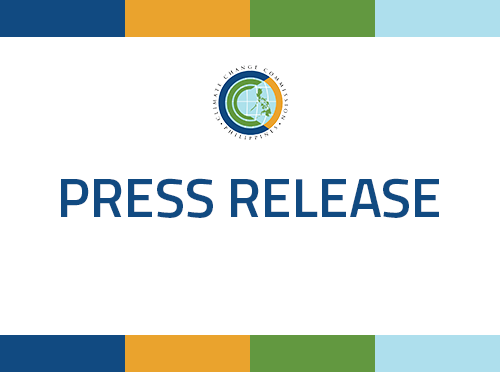
November 21, 2017 Tuesday

Following the theme “Aligning Science, Policy, And Practice For Climate Change and Disaster Resilience,” the second day celebration of the CCC Week held at the Sofitel Philippine Plaza Manila was filled with pro-active and action-oriented discussions on climate data and procedures addressing the country’s need to adapt and to be resilient on the impacts of climate change.
“The changing risk factors caused by climate change demand adaptation, including comprehensive efforts to reduce vulnerability to hazards and more proactive measures to minimize climate change impacts,” CCC Sec. Emmanuel de Guzman said.
The day kicked off with simultaneous forums focusing the ongoing efforts of the Commission in providing technical supports to LGUs by strengthening their Local Climate Action Plans (LCCAP) and setting policies and actions to building sector’s dilemma on greenhouse gas (GHG) by shaping their Nationally Appropriate Mitigation Action (NAMA) towards a climate change-resilient community.
The LCCAP is every community’s action plan outlining agendas identifying local actions to mitigate the potential impacts of climate change.
The Communities for Resilience (CORE) Program of CCC shall assist LGUs in making their LCCAP science-based and risk sensitive, and will help them access the People’s Survival Fund.
“We launched the CORE Program to help local communities adapt to climate change, reduce disaster risk and acquire enduring resilience. It does so by promoting science-based local development planning through training, peer-to-peer learning and excerpt mentoring by academic institutions,” Sec. Emmanuel de Guzman said.
Meanwhile, the NAMA is intended to be the Philippines’ commitment to reduce or possibly GHG emissions from buildings by 70% by 2030 based on the Nationally Determined Contribution (NDC) submitted by the Philippines to United Nations.
Side events were also held promoting transition towards green economy, optimization of the potentials of children in the poorest provinces of the country as agents of change, and risk insurance contributing in alleviating poverty and resiliency of the poor and vulnerable people.